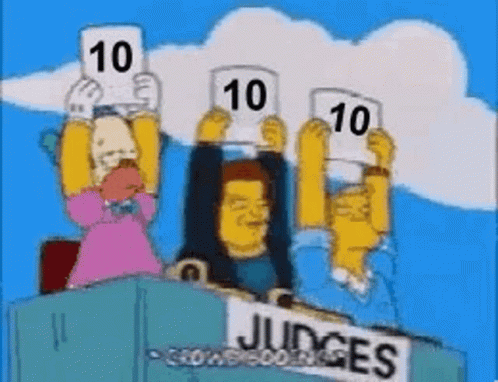



Welcome to the “Can You Identify These Common Grammar Mistakes?” trivia quiz! With a series of questions regarding frequent grammatical blunders that frequently trip people up, this quiz will put your grammar knowledge to the test. This test is ideal for anybody interested in grammar or who wants to brush up on their language abilities. Get ready to spot errors in subject-verb agreement, punctuation, word usage, and more. Choose the correct answers from the options provided and see how well you can navigate the intricacies of grammar. Are you ready to prove your mastery of grammar or learn from your mistakes? Let’s dive in and put your grammar knowledge to the test!
Grammar forms the backbone of effective communication, allowing us to convey our thoughts accurately and precisely. However, even the most seasoned writers and speakers can fall prey to common grammar mistakes. From confusing homophones to misusing punctuation marks, these errors can subtly slip into our writing and speaking, potentially compromising the clarity and impact of our message. Though oft-encountered, even by meticulously worded writers, certain grammatical errors exist which we shall explore, along with methods for evading their insidious grasp.
We invite you to take this English Grammar Test!
Although the three homophones have distinct definitions, many who write casually confuse “their,” “they’re,” and “there” in everyday usage given the similarity in pronunciation. While the possessive pronoun “their” signifies a group’s ownership, the contraction “they’re” refers instead to a group’s condition or circumstance. Finally, “there” refers to a place or location. Carefully considering how context influences word choice allows the discerning writer to select precisely the most fitting terminology for any particular passage.

Although frequently confused and misused in everyday writing due to their identical pronunciation, distinguishing between the possessive determiner “your” and the contraction “you’re” for “you are” is crucial for conveying the intended meaning, as the former indicates ownership while the latter refers to “you” as the subject of the verb “to be.”
The distinction amid “its” and “it’s” can frequently bewilder. “Its” acts as a possessive pronoun, implemented to signify something belonging to an inanimate object or beast, as in “the hound swung its appendage.” Conversely, “it’s” embodies a contraction of “it is.” Retaining that “it’s” equates to “it is” shall obstruct utilizing the erroneous embodiment.
Take this Dialect Quiz! It is a Test With 99% Accuracy!
The symbols of ownership are frequently misapplied, resulting in widespread linguistic inaccuracy. They have two main functions: showing ownership and creating abbreviations. A prevalent blunder involves putting an ownership symbol before the ‘s’ in plural words (e.g. ‘apple’s’ instead of ‘apples’). Another error involves using an ownership symbol with possessive pronouns (e.g. ‘her’s’ instead of ‘hers’). Grasping the proper positioning of ownership symbols can greatly improve the precision of your composition.

Comma splices and run-on sentences occur when two independent clauses are mistakenly joined by a comma without a coordinating conjunction or proper punctuation. For example: “I enjoy hiking, I find it peaceful.” To correct this, you can either separate the clauses into two sentences or use a coordinating conjunction like “and” or “but.” Identifying these errors will help you create clearer and more concise sentences.
Subject-verb agreement is essential to maintain grammatical correctness. Errors occur when the subject and the verb do not match in number. For example: “The dogs is barking” instead of “The dogs are barking.” Paying attention to the singular or plural nature of the subject will assist in ensuring agreement with the verb.
What Is The Plural Of The Word? Take this quiz!
Misplaced modifiers can create confusion and alter the intended meaning of a sentence. A common example is when a modifier is placed in a position that makes it unclear which word or phrase it is modifying. For instance, consider the sentence: “Running down the street, the book fell from her hands.” Here, it suggests that the book was engaged in the act of running. To correct this, we can rephrase it as: “While she was running down the street, the book fell from her hands.” Being mindful of the placement of modifiers ensures that they accurately describe the intended subject.

Pronoun antecedent agreement refers to the consistency between pronouns and their corresponding nouns. It occurs when a pronoun and its antecedent (the noun it replaces) do not agree in number or gender. Whereas grammatically the singular possessive pronoun “everyone” should agree in plurality with “his or her” instead of the plural possessive “their” to maintain coherence, rephrasing the sentence to entirely avoid the issue, stating it as “Everyone should do their best” improves clarity.
Words with the same sound but distinct spellings and meanings are known as homophones. Confusing homophones is a common mistake that can easily slip into our writing. Although on the surface the homophones “to,” “too,” and “two,” not to mention the similarly spelled words “accept,””except,””affect,” and “effect” appear unambiguous, determining the suitable choice amid them can prove vexing. To circumvent potential confusion arising from homophonic similarity and guarantee comprehension of your intended meaning, choose words that share pronunciation but differ in spelling.
Parallelism involves using consistent grammatical structure in a sentence or a series of sentences. When items in a list or a sentence lack parallelism, it can create confusion and disrupt the flow of the text. For instance, consider the sentence: “She enjoys running, hiking, and to swim.” To maintain parallelism, it should be written as: “She enjoys running, hiking, and swimming.” Ensuring that items in a series or a sentence follow the same grammatical pattern enhances the readability and coherence of your writing.
Mastering grammar is an ongoing process, and even experienced writers can stumble upon common mistakes. By familiarizing yourself with these prevalent errors, such as misplaced modifiers, pronoun antecedent agreement, confusing homophones, and lack of parallelism, you can refine your writing skills and avoid potential pitfalls. Consistency, attention to detail, and practice are key to improving your grammar proficiency. You’ll be able to communicate more successfully with practice, making sure that your message is unambiguous, succinct, and grammatically sound.
We invite you to take this Quiz On Common Grammar Mistakes!
The “Can You Identify These Common Grammar Mistakes?” trivia quiz is designed to challenge your understanding of grammar rules and common errors. It features a series of twenty questions with multiple-choice answers, where you need to select the correct option among four possibilities. The quiz covers various grammar topics, including subject-verb agreement, punctuation, possessives, verb forms, comparative degrees, and more.
This exam provides a chance to evaluate your knowledge and find areas that want work, whether you regard yourself as a grammar expert or a grammatical novice. You may improve your grammar skills and obtain a better grasp of frequent grammatical errors to avoid in oral and written communication by responding to the questions. Get ready to engage in a fun and educational journey through the intricacies of grammar!